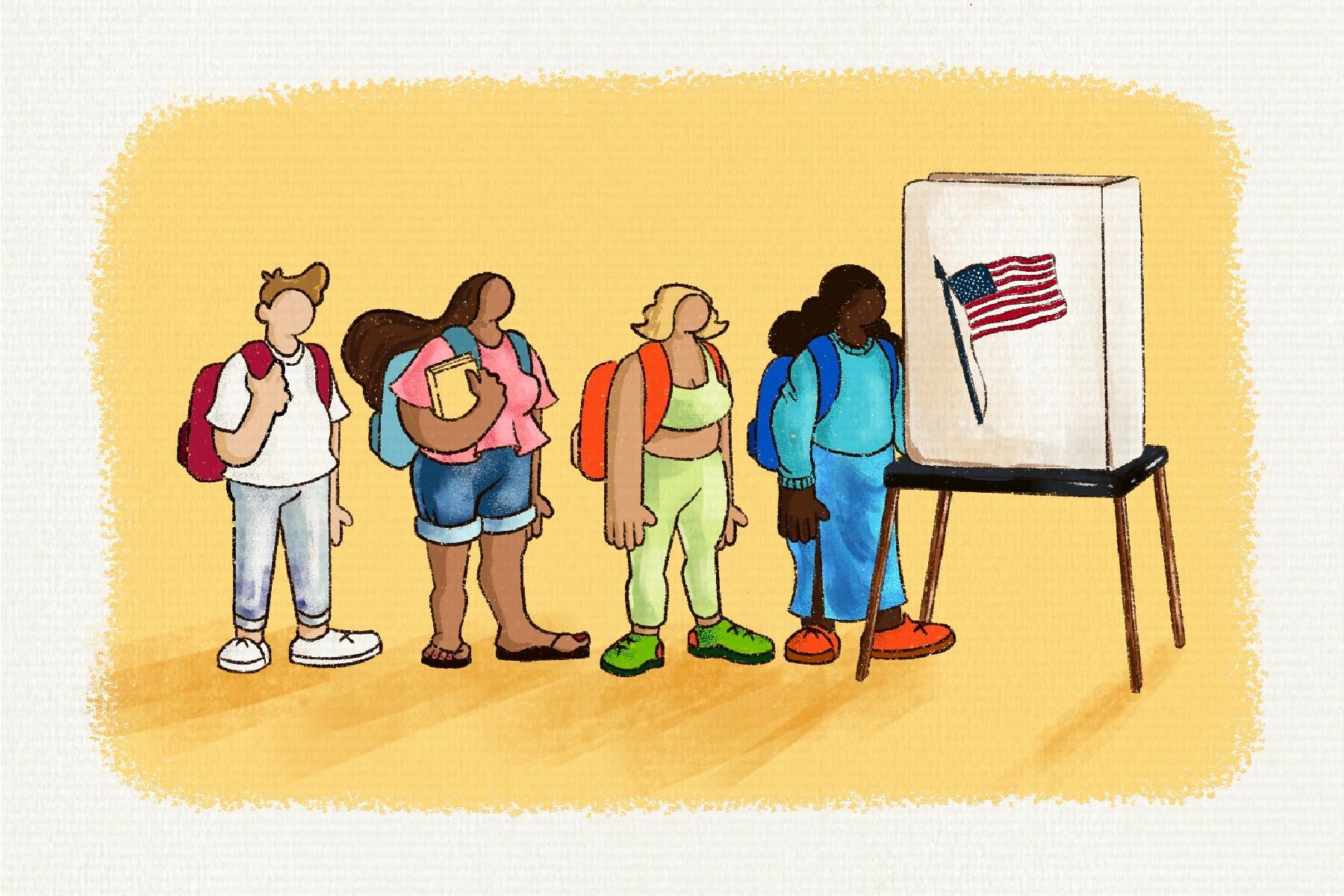This November, many college students will be eligible to vote for the first time in a presidential election that has the potential to be the most pivotal one of their lifetimes. The college-aged voter bloc contains a subgroup with a special power: students who live in one state and attend college in another. These out-of-state students can register to vote in either state — but not both.
Deciding where to vote should follow careful deliberation, as individual votes can hold more impact in certain states and districts than in others. If you are an out-of-state college student, you must use your power wisely.
Augment the Influence of a Single Vote
On any college campus, you will hear students insisting that their votes do not matter. This rumor is devastating; as a result of this mentality, voter turnout among college students is — with the exception of the spike during the 2018 election cycle — painfully low. Rather than succumbing to this easy way out of your obligation as an enfranchised citizen, recognize and act on the ways to make your vote matter more. Looking at the elections in both states, you will find your vote can carry more weight depending on where it is cast.
When deciding where to vote, out-of-state college students should understand a significant component of our democracy: the electoral college. Used to elect the president of the United States, the system grants each state a number of electoral votes based on the state’s population. With the exception of Maine and Nebraska, all of a state’s electoral votes go to the candidate that receives a majority of votes in that state.
For example, if just one more person votes for the Democratic candidate, all of the state’s electoral votes go to the Democratic candidate. It is not unusual for the margin to be thin. Swing states are those whose electoral votes have a good chance of going to either party.
Jump on the Swing States If Possible
When figuring out where to register to vote, check the elections occurring in your school’s state and those in your home state. Out-of-state students should determine if they are swing, or “battleground,” states.
For the 2020 presidential election, swing states include Arizona, Florida, Michigan, North Carolina, Pennsylvania, Texas and Wisconsin. Additionally, 35 U.S. Senate seats are up for election in 2020, many of which will be highly contested and could alter the balance of power just as much as the presidential election. The most competitive U.S. Senate races appear to be in Alabama, Arizona, Colorado, Georgia, Iowa, Kansas, Kentucky, Maine, Montana, North Carolina and South Carolina.
If you live in a swing state, but attend school in a non-swing state, consider registering to vote in your home state and signing up to receive an absentee ballot so you can vote from school. If you go to school in a swing state, register there and find the nearest polling place. Do not register in both states. It will not work.
Do not give up if neither your home state nor your school state is a swing state for the presidential election or U.S. Senate elections. Look into local and congressional races. Voting in these is as, if not more, important than voting in the presidential election. The United States’ foundation is a “separation of powers,” meaning the president is only one of the actors involved in the policies that shape Americans’ lives.
Members of Congress and local officials are capable of effecting tangible change and should be probed thoroughly as you decide where you want to vote. Moreover, many of the races involving these politicians are won by narrow margins. Seek out the close races.
Remember: Your Vote is Valuable
It is so valuable that some might try to steal it from you. Following the 2016 election, a Republican-backed law passed the New Hampshire legislature that planted hefty barriers between college students — a population dominated by Democrats — and their ballots.
Senate Bill 3 required that new voters fill out convoluted documents proving residence or else face fines of up to $5000 or a year in jail. Another law required that those living in the state temporarily, including students, pay hundreds of dollars in registration fees and state motor vehicle licensing in order to vote.
After provoking backlash from nonpartisan and Democratic entities and even triggering a lawsuit, Senate Bill 3 was knocked down and both laws were put under review. Untouched, the laws may have handed New Hampshire over to Trump in the upcoming election, who lost the state by only 0.4% of votes in 2016.
New Hampshire is not the only state trying to obstruct your vote. Until recently, Michigan did not offer online voter registration and required voters meet stringent conditions to qualify for absentee ballots, barring thousands of students from casting their votes.
The 1999 “one-address” law notoriously caused many students, especially out-of-state students, to erroneously believe they could not vote; it was supported by a Republican representative who then won his seat by a mere 160 votes. Fortunately, a recent ballot initiative passed in Michigan — championed by students themselves — that eases the voting process for on-campus college students.
Donald Trump is a proponent of these restrictive voting laws, having won several states by margins that could have been filled by just a fraction of college-student voters. According to a statement released by Politico in February, “the [Republican National Committee] and Trump campaign plans to spend $10 million on a broader legal campaign challenging Democratic voting lawsuits.” Put simply, Trump does not want you to vote.
Check out a list of states’ voting laws that pose obstacles you may have to overcome as you register to vote. Do not let anyone take your vote away from you, if you can help it.
Demonstrate Your Power
The decision should never be whether or not to vote, but where to vote. College-aged citizens typically have low voter turnout, but this November this group must nullify that trend by voting, and voting methodically. Out-of-state students have to embrace their power. Find where your vote could have the most impact. Be prepared to navigate a registration process that may be stymied by unjust voter laws. The leadership in the U.S. is your responsibility. Ultimately, you will be able to take credit or you will share in the blame.
Because of the quirks of the electoral college, out-of-state students have an opportunity to really make the most out of their voting power.
















